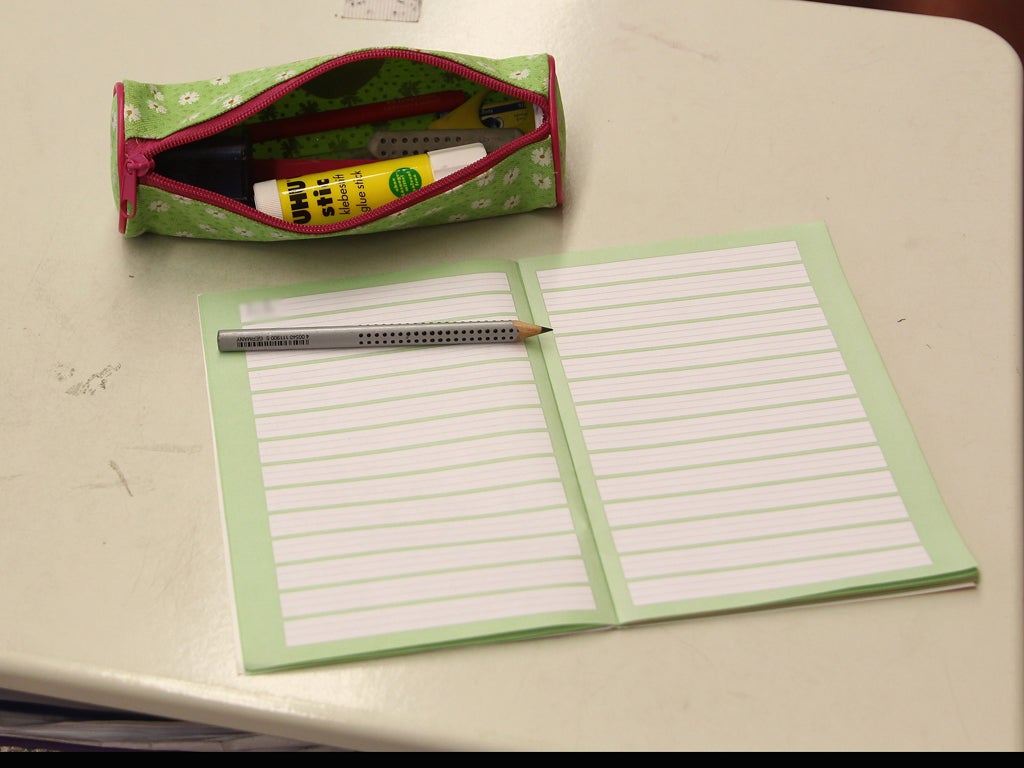Education is in trouble in the UK
Far too many students have a weak grasp of spelling and punctuation - the English Baccalaureate could have been a way of rectifying some of these problems


Your support helps us to tell the story
From reproductive rights to climate change to Big Tech, The Independent is on the ground when the story is developing. Whether it's investigating the financials of Elon Musk's pro-Trump PAC or producing our latest documentary, 'The A Word', which shines a light on the American women fighting for reproductive rights, we know how important it is to parse out the facts from the messaging.
At such a critical moment in US history, we need reporters on the ground. Your donation allows us to keep sending journalists to speak to both sides of the story.
The Independent is trusted by Americans across the entire political spectrum. And unlike many other quality news outlets, we choose not to lock Americans out of our reporting and analysis with paywalls. We believe quality journalism should be available to everyone, paid for by those who can afford it.
Your support makes all the difference.Can we please set aside politics, political parties, gleeful sneering, triumphant whooping and personal remarks for long enough to consider the issues at stake in Michael Gove’s announcement yesterday that the English Baccalaureate proposal (Ebacc) has been withdrawn?
I have no interest at all in Gove’s personality, private feelings or, for that matter the shape of his glasses, name of his dog or make of his car. Neither am I a supporter of any political party. But I am totally committed to education as both a secondary teacher with many decades of experience and as someone who has despairingly observed and written widely about education for more than twenty years.
Education is in trouble in this country. And the situation has been worsening for as long as I can remember. We now send (most) children to school for fifteen years, from age three to age 18. And still they emerge with appalling, shameful shortcomings. The exam passes they may or may not hold are just a smokescreen.
The CBI regularly complains that grades awarded in school level exams are no indicator of literacy, numeracy or general ability and that companies such as Tesco have difficulty recruiting young workers of the right calibre. International ranking now puts Britain’s education, once the envy of the world, sixth after Finland, South Korea, Hong Kong, Japan and Singapore. So how are our school leavers supposed to compete?
University vice chancellors reported to a House of Lords committee last year that many maths and science undergraduates need “remedial” classes because they have been woefully underprepared by their lessons and exams in school. And a group of Oxford academics said last summer that the box ticking culture at A level leaves many students with poor general knowledge and unable to think for themselves.
Bernard Lamb, Emeritus Professor (formerly Reader) in Genetics at Imperial College has long argued – and provided much detailed evidence in support – that far too many of his students have such a weak grasp of spelling and punctuation that they cannot write up their work accurately. Only last week the principal of a top drama school told me that an increasing number of students now arrive unable to follow the punctuation in play texts and are utterly flummoxed by suggestions such as “Let’s look at the verbs in this line”. And a 17 year old Austrian – with fluent, near accentless English acquired only through school in Vienna – asked me the other day why it is that British children can “learn” German or French for five years and still be unable to string a sentence together.
Yes, the evidence is all around us and anyone who persists in denying it has a serious problem – or is perhaps him or herself the victim of a banal, woefully dumbed down standard British education and therefore unable to think straight.
The Ebacc could – just could – have been a fairly simple way of rectifying some of these problems. Five core subjects is a good (hardly new) idea which, whatever the wailing arts and sports lobbies say, would actually have left plenty of time for the extensive pursuit of other valuable activities during the school day. You do not, repeat NOT, have to be examined and assessed ad infinitum in a subject to make it count. In fact it’s that mindset, encouraged by previous botched attempts at reform, which is partly responsible for the problems in education today. Einstein’s comment “What counts might not be countable and what can be counted might not count” should be displayed in every classroom, headteacher’s, education minister’s and Ofsted inspector’s office in the country.
As it is we are now faced with the messy compromise of retaining GCSE with “new” syllabuses (again), underpinned by a “more rigorous” national curriculum and a different sort of league table. Whether any of this will make any real difference remains to be seen. Personally I’m not holding my breath. Every Secretary of State for decades has tried to raise standards in education. All have failed. The enormous, vociferous, powerful “education lobby” of teachers, educational professionals of various sorts and people who think that equality means one-size-fits-all always scuppers the reforms. They’re kindly, decent, hardworking people on the whole, but a dangerous proportion of them mistake high standards for “elitism” which they then push relentlessly with party political point scoring. Meanwhile standards continue to spiral down and our young people lose out.
Join our commenting forum
Join thought-provoking conversations, follow other Independent readers and see their replies
Comments